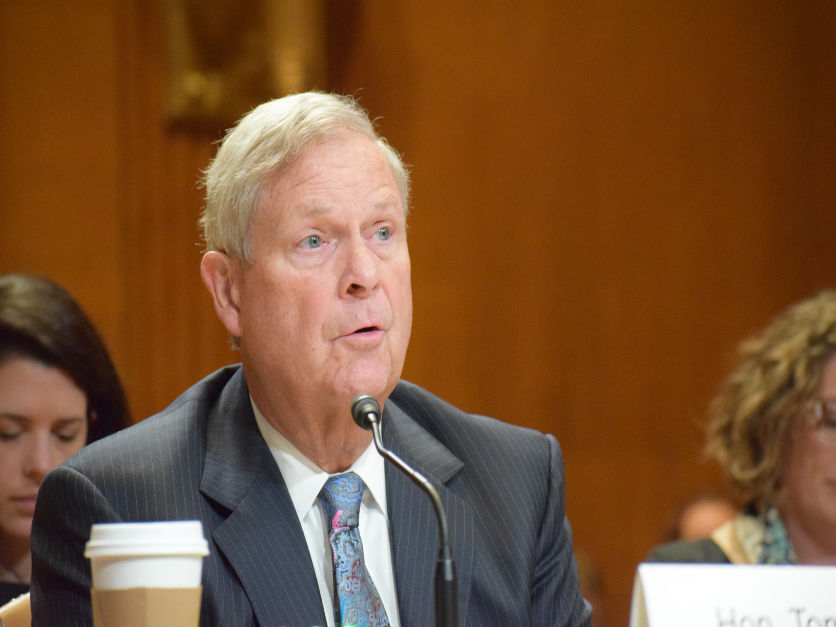Agriculture Secretary Tom Vilsack highlighted concerns over declining U.S. farms and farmland and other key issues facing the agency during a Senate Agriculture Appropriations Subcommittee hearing Tuesday.
The hearing focused on President Joe Biden’s 2025 budget request for USDA, which totals $213.3 billion, with $181.7 billion in mandatory funding and $31.6 billion in discretionary funding.
“I am pleased that this budget request maintains our focus on providing tools to producers and rural communities to become part of our overall effort to solve climate change,” said Chairman Martin Heinrich (D-N.M.) “I will certainly do everything I can to ensure that conservation is a priority in the fiscal year 2025 bill.”
The majority of Vilsack’s comments focused on ongoing issues, namely the decline of small farms. Since 1981, the United States has lost 544,970 farms and 151 million acres of farmland, Vilsack said.
USDA is exploring an increase to the micro-loan limit and the ownership loan limit to better support small and mid-sized farms, Vilsack told the panel. Additionally, he said the department is looking to lower experience requirements to increase access to larger loan programs and offer more opportunities for some financial relief in the form of debt forgiveness or loan servicing.
Loan programs and risk management tools are one piece of the puzzle in preventing further decline, Vilsack said. Expanding the crops and products covered by insurance is another key step.
Vilsack also encouraged expanding markets as another solution to farm loss. Specifically, he pointed to ensuring small and mid-sized farms don’t have a single commodity-based income stream.
Revenue from climate and ecosystem service-related services would help farmers, and USDA should also encourage converting agricultural waste into other products and continue to strengthen local and regional food systems, Vilsack said.
It’s easy to be “in the know” about what’s happening in Washington, D.C. Sign up for a FREE month of Agri-Pulse news! Simply click here.
Vilsack reiterated concerns over how messaging on China is impacting the U.S. ag trade deficit. He pointed out that the trade deficit for the first three months of fiscal year 2024 was $6 billion, and China had purchased $6 billion less.
“What has to happen, I think, is a much more nuanced and sophisticated conversation about China,” Vilsack said. “What's a greater risk, Chinese ownership of farmland or the fact that Wall Street and investment banks own a third of the largest farm operations in the country?”
Vilsack also updated lawmakers on the progress of transitioning work to the National Bio and Agro-Defense Facility in Manhattan, Kansas. The research center opened last year and will replace the Plum Island Animal Disease Center in New York.
The official transfer from the Department of Homeland Security to USDA has begun, and the agency is in the process of moving select agents and other matters to the new location, Vilsack said.
“We’re doing this in a very thoughtful, very careful and very systematic way,” Vilsack said.
He anticipates more progress this summer and fall and believes it will be “significantly” operational by the end of the year.
Members of the panel also pushed for details and updates on the ongoing bird flu outbreak that has spread to cattle in U.S. farms. It will "take time" to control the outbreak, and he is hopeful the situation will be in a “much better place than we are today” within 12 to 18 months, he said.
While some countries have expressed concern over the outbreak in dairy cattle, it has not had a significant impact on trade, he said. Most trading partners understand U.S. milk is safe, he said.
For more news, go to www.Agri-Pulse.com

